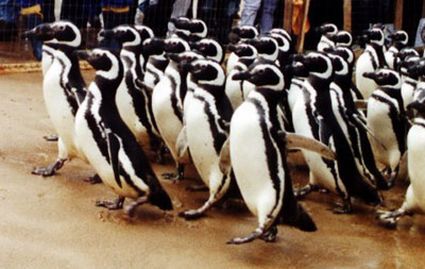Satellite trackers have previously been used on turtles to create turtle network. Now, they are being used on birds like Magellanic penguins. This is done for the penguin’s own good. The tracking device will monitor the penguin movements and help scientists figure out the migratory habit of these birds.
Scientists from University of Washington will be strapping these satellite devices on the backs of six penguins. The goal of the research team is to understand the energy requirements of these Magellanic penguins.Also, another aspect of this research is to see where these birds might run into petroleum. As Boersma says:
We’ll know how much weight they gained or lost on their journey. We know that birds show up oiled back at our colony, so that means they’re getting oiled somewhere between where they winter and Punta Tombo.
The research team is led by scientist Dee Boersma, who is currently a biology professor of the University of Washington. The biology professor has been working with the particular species of penguins for about 25 years in Punta Tombo, Argentina. The petroleum spill that Boersma is talking about is mostly from offshore oil rigs, as well as the ballast water from the passing ships.

The scientists will be releasing six adult male penguins sometime during the week of Aug.20th. These birds will be equipped with tracking devices about the size of common cell phones. The trackers will weigh about 3.5 ounces or less.Epoxy and a customized tape will be used to fix these items on the back of the penguins. After knowing the source of the oil, I am a little bit worried about the health of these majestic creatures.
The movements of these subjects will be monitored all the way through late October giving scientists plenty of time to develop a model. For monitoring purposes, the folks involved in this research will use Agros satellite system, made by the collaboration of National Oceanic and Atmospheric Administration as well as the French Space agency. I hope this study will help save the Magellanic penguins.

